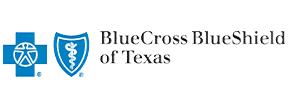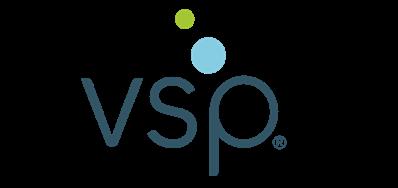2026 Employee Benefits








We know you work hard every day to achieve your personal and professional goals. Since your health and wellness are key to meeting these goals, we are pleased to offer a comprehensive benefits package that supports your health, mind, and body.
LEARN more about your benefits by reading this guide.
DECIDE which benefits are right for you and your family by reviewing your plan options, deductibles, and costs.
ENROLL during Open Enrollment.
You may only enroll for or make changes to your benefits during Open Enrollment (OE) or when you have a Qualifying Life Event (see page 5).
January 1 through December 31, 2026
If you (and/or your dependents) have Medicare or will become eligible for Medicare in the next 12 months, federal law gives you more choices for your prescription drug coverage. Please see Legal Notices for more details.
Your benefits program offers medical coverage options. To help you make an informed choice, review each plan’s Summary of Benefits and Coverage available by contacting Human Resources.

You are eligible for coverage if you are a regular, full-time employee. You may only enroll for coverage when:
You are a new hire
It is Open Enrollment (OE)
You have a Qualifying Life Event (QLE)
See page 5 for Important Exclusions and Limitations.
A regular, full-time employee working an average of 30 hours per week
Enroll by the deadline given by Human Resources
First of the month following 30 days of employment
You must be Actively at Work on the date your coverage becomes effective. Your coverage must be in effect for your spouse’s and eligible children’s coverage to take effect. See plan documents for specific details.
A regular, full-time employee working an average of 30 hours per week
Enroll during OE or when you have a QLE
You must be actively at work on the plan effective date for new benefits to be effective
QLE: Ask Human Resources
Your legal spouse
Child(ren) under age 26, regardless of student, dependency, or marital status
Child(ren) over age 26 who are fully dependent on you for support due to a mental or physical disability and who are indicated as such on your federal tax return
You must enroll the dependent(s) during OE or when you have a QLE
When covering dependents, you must enroll for and be on the same plans
Dependents cannot be double-covered by married spouses within the district as both employees and dependents
Based on OE or QLE effective dates

You may only change coverage during the plan year if you have a Qualifying Life Event, such as:

Marriage
Divorce
Legal separation
Annulment
Death of a spouse

Birth
Adoption
Placement for adoption
Change in benefits eligibility
Death of a child

Undergoing FMLA, COBRA event, judgment, or decree
Becoming eligible for Medicare, Medicaid, or TRICARE
Receiving a Qualified Medical Child Support Order

Gain or loss of benefits coverage
Change in employment status affecting benefits
Significant change in cost of spouse’s coverage

If you have a QLE and want to request a midyear change, you must notify Human Resources and complete your election changes within 30 days following the event. Be prepared to provide documentation supporting the QLE.
Protects you and your family from major financial hardship in the event of illness or injury.

With an Exclusive Provider Organization (EPO) plan, you must only see innetwork providers for your care. With the exception of a true emergency, benefits are only payable if you go to in-network providers or facilities for care. If you go to an out-of-network provider or facility, you will be responsible for all costs. You do not have to select a primary care physician or get a referral to see a specialist. Always confirm that your doctors and specialists are innetwork before seeking care.
This plan option is also a High Deductible Health Plan (HDHP). In exchange for a lower per-paycheck cost for medical benefits, you must satisfy a higher plan deductible that applies to almost all health care expenses, including prescription drugs. If you enroll in the HDHP, you may be eligible to open a Health Savings Account (see page 10).

You have a choice of two medical plans:
Choice Plan – This plan has a $1,000 Individual and a $2,000 family in-network deductible.
Choice HDHP – This plan is a qualified High Deductible Health Plan and has a $5,000 individual and a $10,000 family in-network deductible.

Blue Access for Members (BAM) is the secure BCBSTX member website where you can:
Check claim status or history
Confirm dependent eligibility
Sign up for electronic Explanation of Benefits statements Locate in-network providers
Print or request an ID card
Review your benefits
Get tips to live and eat healthier
Register for an account at www.bcbstx.com
The BCBSTX mobile app can help you stay organized and in control of your health anytime, anywhere. Log in from your mobile device to access your BAM account to:
Track account balances and deductibles
Access ID card information
Find doctors, dentists, and pharmacies


Call 800-581-0368 for immediate access to registered nurses who can answer general health questions, make appointments with your doctor, and help determine where to go for immediate or emergency health care services. You can also access an audio library of more than 1,000 health-related topics in both English and Spanish.
Allows access to licensed, certified paramedics or doctors at work or from your mobile phone.
The Medicine At Work Program gives all Mustang Cat employees fast, free, and confidential access to licensed, certified paramedics and physicians, either on-site or through your mobile phone. The goal is to identify potential health issues early and provide convenient care right from your worksite.
Our on-site clinic at Highway 290 is staffed by a paramedic five days a week, and branch locations can connect with a doctor through the Medicine At Work app. Services include medical treatment, flu shots, nutritional counseling, and tobacco cessation, all provided through an independent third-party medical team to ensure complete confidentiality.
To use the program, simply complete a Health Risk Assessment (HRA). Mustang Cat covers 100% of the cost for all on-site and virtual consultations. Any outside services, like lab work or prescriptions, are your responsibility.
You do not need to be full-time or enrolled in the company health plan to participate. All Mustang Cat employees are welcome to use this valuable benefit.
Do not use this service for serious or life-threatening emergencies.

Visit the On-site Clinic at the 290 Campus
Enter through the Grovecrest gate using your badge. Park at the back of the building, facing the large bore engine shop, and enter through the far-right door under the awning.
Monday through Friday 7:00 a.m. – 3:00 p.m. CT
Download the MedAtWork app (Login: Your Mustang email. Password: Your home ZIP code) Call ext. 7742 (713-452-7742) to speak with a paramedic.
Your regular provider may offer telemedicine services, so it is best to ask now and know what your options are before you need care.

Offsets your medical costs, reduces your taxes, and offers a long-term tax-advantaged savings account.
An HSA is a tax-deductible savings plan that allows you to put aside pretax dollars to use for current or future health care expenses. It is also a tax-exempt tool to supplement your retirement savings. It is always yours to keep, even if you change health plans or jobs.
You are eligible to open and contribute to an HSA if you are:
Enrolled in an HSA-eligible HDHP (Choice HDHP)
Not covered by another plan that is not a qualified HDHP, such as your spouse’s health plan
Not enrolled in a Health Care Flexible Spending Account
Not eligible to be claimed as a dependent on someone else’s tax return
Not enrolled in Medicare, Medicaid, or TRICARE
Not receiving Veterans Administration benefits
Always ask your network doctor to file claims with your medical, dental, or vision carrier so you will get the highest level of benefits. You can pay the doctor with your HSA debit card for any balance due.
You, not your employer, are responsible for maintaining ALL records and receipts for HSA reimbursements in the event of an IRS audit.
contributions
3. Withdrawals for qualifying medical expenses are tax-free.
Your HSA contributions (including company contributions) may not exceed the annual maximum amounts established by the IRS. The annual contribution maximum is based on the coverage option you elect:

You decide whether to use the money in your account to pay for qualified expenses or let it grow for future use. If you are age 55 or older, you may make a yearly catch-up contribution of up to $1,000 to your HSA. If you turn 55 at anytime during the plan year, you are eligible to make the catch-up contribution for the entire plan year.
You may open an HSA at the financial institution of your choice, but only accounts opened through Fidelity are eligible for automatic payroll deduction and company contributions.
If you meet the eligibility requirements, you may open an HSA administered by Fidelity. You will receive a debit card to manage your HSA account reimbursements. Keep in mind, available funds are limited to the balance in your HSA. To open an account, go to www.netbenefits.com
If you enroll in the HDHP medical plan, Mustang Cat will contribute $38.47 to your HSA each pay period. You must contribute at least $1 per pay period to receive company contributions.
Remember, your combined contributions may not exceed the annual maximums as set by the IRS.
Set aside pretax dollars from each paycheck to pay for certain IRS-approved health and dependent care expenses. We offer the following Flexible Spending Accounts (FSAs) administered by WEX .
The Health Care FSA covers qualified medical, dental, and vision expenses for you and your eligible dependents. Eligible expenses include:
Deductibles, copays, and coinsurance
Prescription drugs
Braces, glasses, and contacts
Hearing aids and batteries
If you enrolled in an HDHP and contribute to an HSA, you may not contribute to a Health Care FSA.
You can access the funds in your Health Care FSA two ways:
Use your FSA debit card to pay for qualified expenses, doctor visits, and prescription copays.
Pay out-of-pocket, and submit your receipts for reimbursement:
Visit www.wexinc.com/contact/health
Call 866-451-3399

The Dependent Care FSA helps pay expenses associated with caring for children under age 13 and elder dependents so you or your spouse can work or attend school full-time.
To be eligible, you (and your spouse, if married) must be gainfully employed, looking for work, a full-time student, or incapable of self-care.
You can use funds for daycare or babysitter expenses for your children under age 13, but only for the part of the year when the child is under 13.
Only day camps – not overnight camps – can be considered for reimbursement.
You can use funds for care of a spouse or dependent of any age who spends at least eight hours a day in your home and is mentally or physically incapable of self-care.
The dependent care provider cannot be your child under age 19 or anyone claimed as a dependent on your income taxes.
Use your FSA debit card (excludes the Dependent Care FSA). OR
Pay out-of-pocket, and submit your receipts for reimbursement.

Helps maintain fresh breath, healthy gums and teeth, and other dental work.

Two levels of benefits are available with the DPPO plans: in-network and out-of-network. You may see any dental provider for care, but you will pay less and get the highest level of benefits with in-network providers. You could pay more if you use an out-of-network provider.
If you enroll in the DHMO plan, you must select a primary care dentist (PCD) from the DHMO network directory to manage your care. Eligible dependents may each choose their own PCD. Dental services are unlimited and have fixed copays. There are no deductibles or claim forms to file. There is no coverage for services provided without a PCD referral or if you get care from out-of-network providers.


Helps detect certain medical issues, prolong your eyesight, and correct vision or eye problems.
Our vision plan offers quality care to help preserve your health and eyesight. Regular exams can detect certain medical issues such as diabetes and high blood pressure, in addition to vision and eye problems. You may seek care from any vision provider, but the plan will pay the highest level of benefits when you see in-network providers.

In
•
•
•


Provides your loved ones with a financial safety net after your death and/or after an accident that causes loss of life, limb, or function.
Life and Accidental Death and Dismemberment (AD&D) insurance are important to your financial security, especially if others depend on you for support or vice versa. With Life insurance, you or your beneficiary(ies) can use the coverage to pay off debts such as credit cards, loans, and bills. AD&D coverage provides specific benefits if an accident causes bodily harm or loss (e.g., the loss of a hand, foot, or eye). If death occurs from an accident, 100% of the AD&D benefit would be paid to you or your beneficiary(ies). Life and AD&D coverage amounts reduce to 65% at age 70, 45% at age 75, and 30% at age 80.
Basic Life and AD&D insurance for you and your eligible dependents are provided at no cost to you through New York Life
If you need more coverage than Basic Life and AD&D, you may buy Voluntary Life and AD&D for yourself and your dependent(s). If you do not elect Voluntary Life and AD&D insurance when first eligible, or if you want to increase your benefit amount at a later date, you may need to show proof of good health. You must elect Voluntary Life and AD&D coverage for yourself before covering your spouse and/or child(ren).
Voluntary Life is available through New York Life
• Increments of $10,000 up to five times annual salary not to exceed $500,000
• Guaranteed Issue $150,000
Spouse
• Increments of $10,000 up to $130,000 not to exceed 50% of employee amount
• Guaranteed Issue $50,000
• Increments of $2,500 up to $10,000 • Guaranteed Issue $10,000
A beneficiary is the person or entity you elect to receive the death benefits of your Life and AD&D insurance policies. You can name more than one beneficiary, and you can change beneficiaries at anytime. If you name more than one beneficiary, you must identify how much each beneficiary will receive (e.g., 50% or 25%).
Voluntary AD&D is available through AIG National Union Fire Benefits are paid according to a schedule of extent of loss.

partial income protection if you are unable to work due to a covered accident or illness.
We offer Voluntary Short Term Disability (STD) for you to purchase and provide Long Term Disability (LTD) at no cost to you through New York Life
Voluntary STD coverage pays a percentage of your weekly salary if you are temporarily disabled and unable to work due to an illness, pregnancy, or non-work related injury. STD benefits are not payable if the disability is due to a job-related injury or illness. If a medical condition is job-related, it is considered workers’ compensation, not STD.
You are responsible for 100% of the premium for Voluntary Short Term Disability. The cost is salary based.
LTD insurance pays a percentage of your monthly salary for a covered disability or injury that prevents you from working for more than 90 days. Benefits begin at the end of an elimination period and continue while you are disabled up to maximum benefit period.
If you were temporarily unable to work, would you be able to cover your bills?


Mustang Cat provides fully-insured workers’ compensation insurance to protect you in the event of a work-related injury or illness. Coverage is provided through Liberty Mutual at no cost to you.
You must notify Human Resources no later than 30 days of a work-related injury or illness, unless the Texas Department of Insurance Workers’ Compensation Division (TDIWCD) determines that good cause existed for failure to provide timely notice. For additional information about your rights and responsibilities under the law, contact the TDIWCD at 800-252-7031
Mustang Cat requires all employees to report any injury or suspected injury to their supervisor or Human Resources without fear of retaliation for making the report. Your supervisor will assist you with completing the First Report of Injury form, which is sent to Liberty Mutual.
Helps you and family members cope with a variety of personal or work-related issues.
The Employee Assistance Program (EAP) from LifeWorks provides confidential counseling and support services at little or no cost to you to help with:
Relationships
Work/life balance
Stress and anxiety
Will preparation and estate resolution
Grief and loss
Childcare and eldercare resources
Substance abuse

Contact the EAP
Get support at any hour of the day or night. Call 888-267-8126
Visit www.lifeworks.com (user ID: mustang/password: cat)
Coverage includes six face-to-face sessions with a certified therapist and a 30-minute legal consult (per issue). These sessions can be used for you or any of your eligible dependents. Additional sessions can be purchased at a discounted rate. Visit www.lifeworks.com for more details.

Mustang Cat provides a Business Travel Accident Insurance policy to cover all active, full-time employees while on business travel, whether overseas, out of state, or to a local branch store. Coverage is five times your base annual pay up to $150,000. There is also a scheduled benefit for dismemberment and paralysis for injuries sustained while traveling on company business. Coverage is provided through National Union Fire
Cigna Secure Travel provides 24/7 emergency medical and travel assistance when traveling 100 miles or more from your home. The Travel Assistance Program also provides emergency security assistance services when you are outside of your home country.
Medical and Transportation Services – Medical referrals, replacement of medications, medically necessary repatriation, visit of a family member or friend, advance emergency medical expenses, emergency evacuation, repatriation of remains, and return of dependent children.
Trip Planning Services – Inoculation and visa information, cultural information, temperature and weather information, embassy and consular referral, foreign exchange rates, legal assistance, and telephone interpretation service.
All full-time employees with 60 days of service are eligible to join the CEFCU credit union. There is a $1.00 joining fee and $5.00 minimum deposit to open an account. A check for $6.00 must be sent with your credit union application. After your account has been set up, you can complete a payroll deduction form to begin deposits to your account. The credit union booklet with an application form is available from the benefits office. If you have questions, you can call the credit union at 800-447-2478 or visit www.cefcu.com
You have the option to purchase home or auto insurance and pay your premiums through payroll deductions. For quotes and contact information, go to Mustang Connect-Benefits. Coverage is provided through Liberty Mutual
You have the option to purchase supplemental hospital, critical illness, or accident insurance and pay your premiums through payroll deductions. Coverage is provided through Aflac . For information, go to Mustang Connect-Benefits.

A 401(k) plan can be a powerful tool to help you be financially secure in retirement. Our 401(k) plan through Fidelity can help you reach your investment goals.
Employees are automatically enrolled in the 401(k) plan on the first day of employment. Mustang Cat makes matching contributions after you complete 12 months of service.
Auto-Enrollment – 5% contribution
Annual Auto-Increase – 1% automatic contribution rate increase, up to 9% maximum
Company Match – Matching is declared and announced annually.
You are eligible to participate in the plan if you are 18 years of age and have three months of service with the company. You may contribute up to the annual IRS limit.
You may direct your contributions to any of the investments offered within the company 401(k) plan. You decide how much you want to contribute and can change your contribution amount anytime. All changes are effective as soon as administratively feasible and remain in effect until you update or stop your contributions. You also decide how to invest the assets in your account and may change your investment choices anytime. For more details, refer to your 401(k) Enrollment Guide.
These contributions consist of pre-tax dollars and any earnings on these contributions grow tax deferred. If you reach age 50 any time during the calendar year, you may make an additional “Catch-Up” contribution.


In October 1998, Congress enacted the Women’s Health and Cancer Rights Act of 1998. This notice explains some important provisions of the Act. Please review this information carefully.
As specified in the Women’s Health and Cancer Rights Act, a plan participant or beneficiary who elects breast reconstruction in connection with a mastectomy is also entitled to the following benefits:
All stages of reconstruction of the breast on which the mastectomy was performed;
Surgery and reconstruction of the other breast to produce a symmetrical appearance; and
Prostheses and treatment of physical complications of the mastectomy, including lymphedema.
Health plans must determine the manner of coverage in consultation with the attending physician and the patient. Coverage for breast reconstruction and related services may be subject to deductibles and coinsurance amounts that are consistent with those that apply to other benefits under the plan.
This notice is being provided to ensure that you understand your right to apply for group health insurance coverage. You should read this notice even if you plan to waive coverage at this time.
for Medicaid or a state Children’s
(CHIP)
If you are declining coverage for yourself or your dependents because of other health insurance or group health plan coverage, you may be able to later enroll yourself and your dependents in this plan if you or your dependents lose eligibility for that other coverage (or if the employer stops contributing toward your or your dependents’ other coverage). However, you must enroll within 31 days after your or your dependents’ other coverage ends (or after the employer that sponsors that coverage stops contributing toward the other coverage).
If you or your dependents lose eligibility under a Medicaid plan or CHIP, or if you or your dependents become eligible for a subsidy under Medicaid or CHIP, you may be able to enroll yourself and your dependents in this plan. You must provide notification within 60 days after you or your dependent is terminated from, or determined to be eligible for, such assistance.
If you have a new dependent as a result of a marriage, birth, adoption, or placement for adoption, you may be able to enroll yourself and your dependents. However, you must enroll within 31 days after the marriage, birth, or placement for adoption.
To request special enrollment or obtain more information, contact:
Mustang Tractor & Equipment Company, LTD
Human Resources
12800 Northeast Freeway Houston TX 77040
713-452-7753
Please read this notice carefully and keep it where you can find it. This notice has information about your current prescription drug coverage with Mustang Tractor & Equipment Company, LTD and about your options under Medicare’s prescription drug coverage. This information can help you decide whether or not you want to enroll in a Medicare drug plan. Information about where you can get help to make decisions about your prescription drug coverage is at the end of this notice.
If neither you nor any of your covered dependents are eligible for or have Medicare, this notice does not apply to you or the dependents, as the case may be. However, you should still keep a copy of this notice in the event you or a dependent should qualify for coverage under Medicare in the future. Please note, however, that later notices might supersede this notice.
1. Medicare prescription drug coverage became available in 2006 to everyone with Medicare. You can get this coverage through a Medicare Prescription Drug Plan or a Medicare Advantage Plan that offers prescription drug coverage. All Medicare prescription drug plans provide at least a standard level of coverage set by Medicare. Some plans may also offer more coverage for a higher monthly premium.
2. Mustang Tractor & Equipment Company, LTD has determined that the prescription drug coverage offered by the Mustang Tractor & Equipment Company, LTD medical plan is, on average for all plan participants, expected to pay out as much as the standard Medicare prescription drug coverage pays and is considered Creditable Coverage.
Because your existing coverage is, on average, at least as good as standard Medicare prescription drug coverage, you can keep this coverage and not pay a higher premium (a penalty) if you later decide to enroll in a Medicare prescription drug plan, as long as you later enroll within specific time periods.
You can enroll in a Medicare prescription drug plan when you first become eligible for Medicare. If you decide to wait to enroll in a Medicare prescription drug plan, you may enroll later, during Medicare Part D’s annual enrollment period, which runs each year from October 15 through December 7 but as a general rule, if you delay your enrollment in Medicare Part D after first becoming eligible to enroll, you may have to pay a higher premium (a penalty).
You should compare your current coverage, including which drugs are covered at what cost, with the coverage and cost of the plans offering Medicare prescription drug coverage in your area. See the Plan’s summary plan description for a summary of the Plan’s prescription drug coverage. If you don’t have a copy, you can get one by contacting Mustang Cat at the phone number or address listed at the end of this section.
If you choose to enroll in a Medicare prescription drug plan and cancel your current Mustang Cat prescription drug coverage, be aware that you and your dependents may not be able to get this coverage back. To regain coverage, you would have to re-enroll in the Plan, pursuant to the Plan’s eligibility and enrollment rules. You should review the Plan’s summary plan description to determine if and when you are allowed to add coverage.
If you cancel or lose your current coverage and do not have prescription drug coverage for 63 days or longer prior to enrolling in the Medicare prescription drug coverage, your monthly premium will be at least 1% per month greater for every month that you did not have coverage for as long as you have Medicare prescription drug coverage. For example, if nineteen months lapse without coverage, your premium will always be at least 19% higher than it would have been without the lapse in coverage.
For more information about this notice or your current prescription drug coverage: Contact the Human Resources Department at 713-452-7753
NOTE: You will receive this notice annually and at other times in the future, such as before the next period you can enroll in Medicare prescription drug coverage and if this coverage changes. You may also request a copy.
For more information about your options under Medicare prescription drug coverage:
More detailed information about Medicare plans that offer prescription drug coverage is in the “Medicare & You” handbook. You will get a copy of the handbook in the mail every year from Medicare. You may also be contacted directly by Medicare prescription drug plans. For more information about Medicare prescription drug coverage:
Visit www.medicare.gov
Call your State Health Insurance Assistance Program (see the inside back cover of your copy of the “Medicare & You” handbook for their telephone number) for personalized help.
Call 1-800-MEDICARE (1-800-633-4227) TTY users should call 877-486-2048
If you have limited income and resources, extra help paying for Medicare prescription drug coverage is available. Information about this extra help is available from the Social Security Administration (SSA) online at www.socialsecurity.gov, or you can call them at 800-772-1213. TTY users should call 800-325-0778
Remember: Keep this Creditable Coverage notice. If you enroll in one of the new plans approved by Medicare which offer prescription drug coverage, you may be required to provide a copy of this notice when you join to show whether or not you have maintained creditable coverage and whether or not you are required to pay a higher premium (a penalty).
January 1, 2026
Mustang Tractor & Equipment Company, LTD Human Resources 12800 Northeast Freeway Houston TX 77040 713-452-7753
This notice describes how medical information about you may be used and disclosed and how you can get access to this information. Please review it carefully.
Effective Date of Notice: September 23, 2013
Mustang Tractor & Equipment Company, LTD’s Plan is required by law to take reasonable steps to ensure the privacy of your personally identifiable health information and to inform you about:
1. the Plan’s uses and disclosures of Protected Health Information (PHI);
2. your privacy rights with respect to your PHI;
3. the Plan’s duties with respect to your PHI;
4. your right to file a complaint with the Plan and to the Secretary of the U.S. Department of Health and Human Services; and
5. the person or office to contact for further information about the Plan’s privacy practices.
The term “Protected Health Information” (PHI) includes all individually identifiable health information transmitted or maintained by the Plan, regardless of form (oral, written, electronic).
Upon your request, the Plan is required to give you access to your PHI in order to inspect and copy it.
Use and disclosure of your PHI may be required by the Secretary of the Department of Health and Human Services to investigate or determine the Plan’s compliance with the privacy regulations.
Uses and disclosures to carry out treatment, payment and health care operations.
The Plan and its business associates will use PHI without your authorization to carry out treatment, payment and health care operations. The Plan and its business associates (and any health insurers providing benefits to Plan participants) may also disclose the following to the Plan’s Board of Trustees: (1) PHI for purposes related to Plan administration (payment and health care operations); (2) summary health information for purposes of health or stop loss insurance underwriting or for purposes of modifying the Plan; and (3) enrollment information (whether an individual is eligible for benefits under the Plan). The Trustees have amended the Plan to protect your PHI as required by federal law.
Treatment is the provision, coordination or management of health care and related services. It also includes but is not limited to consultations and referrals between one or more of your providers.
For example, the Plan may disclose to a treating physician the name of your treating radiologist so that the physician may ask for your X-rays from the treating radiologist.
Payment includes but is not limited to actions to make coverage determinations and payment (including billing, claims processing, subrogation, reviews for medical necessity and appropriateness of care, utilization review and preauthorizations).
For example, the Plan may tell a treating doctor whether you are eligible for coverage or what percentage of the bill will be paid by the Plan.
Health care operations include but are not limited to quality assessment and improvement, reviewing competence or qualifications of health care professionals, underwriting, premium rating and other insurance activities relating to creating or renewing insurance contracts. It also includes case management, conducting or arranging for medical review, legal services and auditing functions including fraud and abuse compliance programs, business planning and development, business management and general administrative activities. However, no genetic information can be used or disclosed for underwriting purposes.
For example, the Plan may use information to project future benefit costs or audit the accuracy of its claims processing functions.
Uses and disclosures that require that you be given an opportunity to agree or disagree prior to the use or release.
Unless you object, the Plan may provide relevant portions of your protected health information to a family member, friend or other person you indicate is involved in your health care or in helping you receive payment for your health care. Also, if you are not capable of agreeing or objecting to these disclosures because of, for instance, an emergency situation, the Plan will disclose protected health information (as the Plan determines) in your best interest. After the emergency, the Plan will give you the opportunity to object to future disclosures to family and friends.
Uses and disclosures for which your consent, authorization or opportunity to object is not required.
The Plan is allowed to use and disclose your PHI without your authorization under the following circumstances:
1. For treatment, payment and health care operations.
2. Enrollment information can be provided to the Trustees.
3. Summary health information can be provided to the Trustees for the purposes designated above.
4. When required by law.
5. When permitted for purposes of public health activities, including when necessary to report product defects and to permit product recalls. PHI may also be disclosed if you have been exposed to a communicable disease or are at risk of spreading a disease or condition, if required by law.
6. When required by law to report information about abuse, neglect or domestic violence to public authorities if there exists a reasonable belief that you may be a victim of abuse, neglect or domestic violence. In which case, the Plan will promptly inform you that such a disclosure has been or will be made unless that notice would cause a risk of serious harm. For the purpose of reporting child abuse or neglect, it is not necessary to inform the minor that such a disclosure has been or will be made. Disclosure may generally be made to the minor’s parents or other representatives although there may be circumstances under federal or state law when the parents or other representatives may not be given access to the minor’s PHI.
7. The Plan may disclose your PHI to a public health oversight agency for oversight activities required by law. This includes uses or disclosures in civil, administrative or criminal investigations; inspections; licensure or disciplinary actions (for example, to investigate complaints against providers); and other activities necessary for appropriate oversight of government benefit programs (for example, to investigate Medicare or Medicaid fraud).
8. The Plan may disclose your PHI when required for judicial or administrative proceedings. For example, your PHI may be disclosed in response to a subpoena or discovery request.
9. When required for law enforcement purposes, including for the purpose of identifying or locating a suspect, fugitive, material witness or missing person. Also, when disclosing information about an individual who is or is suspected to be a victim of a crime but only if the individual agrees to the disclosure or the Plan is unable to obtain the individual’s agreement because of emergency circumstances. Furthermore, the law enforcement official must represent that the information is not intended to be used against the individual, the immediate law enforcement activity would be materially and adversely affected by waiting to obtain the individual’s agreement and disclosure is in the best interest of the individual as determined by the exercise of the Plan’s best judgment.
10. When required to be given to a coroner or medical examiner for the purpose of identifying a deceased person, determining a cause of death or other duties as authorized by law. Also, disclosure is permitted to funeral directors, consistent with applicable law, as necessary to carry out their duties with respect to the decedent.
11. When consistent with applicable law and standards of ethical conduct if the Plan, in good faith, believes the use or disclosure is necessary to prevent or lessen a serious and imminent threat to the health or safety of a person or the public and the disclosure is to a person reasonably able to prevent or lessen the threat, including the target of the threat.
12. When authorized by and to the extent necessary to comply with workers’ compensation or other similar programs established by law.
Except as otherwise indicated in this notice, uses and disclosures will be made only with your written authorization subject to your right to revoke such authorization.
Uses and disclosures that require your written authorization.
Other uses or disclosures of your protected health information not described above will only be made with your written authorization. For example, in general and subject to specific conditions, the Plan will not use or disclose your psychiatric notes; the Plan will not use or disclose your protected health information for marketing; and the Plan will not sell your protected health information, unless you provide a written authorization to do so. You may revoke written authorizations at any time, so long as the revocation is in writing. Once the Plan receives your written revocation, it will only be effective for future uses and disclosures. It will not be effective for any information that may have been used or disclosed in reliance upon the written authorization and prior to receiving your written revocation.
You may request the Plan to restrict the uses and disclosures of your PHI. However, the Plan is not required to agree to your request (except that the Plan must comply with your request to restrict a disclosure of your confidential information for payment or health care operations if you paid for the services to which the information relates in full, out of pocket).
You or your personal representative will be required to submit a written request to exercise this right. Such requests should be made to the Plan’s Privacy Official.
The Plan will accommodate reasonable requests to receive communications of PHI by alternative means or at alternative locations if necessary to prevent a disclosure that could endanger you.
You or your personal representative will be required to submit a written request to exercise this right.
Such requests should be made to the Plan’s Privacy Official.
You have a right to inspect and obtain a copy of your PHI contained in a “designated record set,” for as long as the Plan maintains the PHI. If the information you request is in an electronic designated record set, you may request that these records be transmitted electronically to yourself or a designated individual.
Includes all individually identifiable health information transmitted or maintained by the Plan, regardless of form.
Includes the medical records and billing records about individuals maintained by or for a covered health care provider; enrollment, payment, billing, claims adjudication and case or medical management record systems maintained by or for the Plan; or other information used in whole or in part by or for the Plan to make decisions about individuals. Information used for quality control or peer review analyses and not used to make decisions about individuals is not in the designated record set.
The requested information will be provided within 30 days if the information is maintained on site or within 60 days if the information is maintained off site. A single 30-day extension is allowed if the Plan is unable to comply with the deadline.
You or your personal representative will be required to submit a written request to request access to the PHI in your designated record set. Such requests should be made to the Plan’s Privacy Official.
If access is denied, you or your personal representative will be provided with a written denial, setting forth the basis for the denial, a description of how you may appeal the Plan’s decision and a description of how you may complain to the Secretary of the U.S. Department of Health and Human Services.
The Plan may charge a reasonable, costbased fee for copying records at your request.
You have the right to request the Plan to amend your PHI or a record about you in your designated record set for as long as the PHI is maintained in the designated record set.
The Plan has 60 days after the request is made to act on the request. A single 30-day extension is allowed if the Plan is unable to comply with the deadline. If the request is denied in whole or part, the Plan must provide you with a written denial that explains the basis for the denial. You or your personal representative may then submit a written statement disagreeing with the denial and have that statement included with any future disclosures of your PHI.
Such requests should be made to the Plan’s Privacy Official.
You or your personal representative will be required to submit a written request to request amendment of the PHI in your designated record set.
At your request, the Plan will also provide you an accounting of disclosures by the Plan of your PHI during the six years prior to the date of your request. However, such accounting will not include PHI disclosures made: (1) to carry out treatment, payment or health care operations; (2) to individuals about their own PHI; (3) pursuant to your authorization; (4) prior to April 14, 2003; and (5) where otherwise permissible under the law and the Plan’s privacy practices. In addition, the Plan need not account for certain incidental disclosures.
If the accounting cannot be provided within 60 days, an additional 30 days is allowed if the individual is given a written statement of the reasons for the delay and the date by which the accounting will be provided.
If you request more than one accounting within a 12-month period, the Plan will charge a reasonable, cost-based fee for each subsequent accounting.
Such requests should be made to the Plan’s Privacy Official.
You have the right to obtain a paper copy of this Notice. Such requests should be made to the Plan’s Privacy Official.
You may exercise your rights through a personal representative. Your personal representative will be required to produce evidence of his/her authority to act on your behalf before that person will be given access to your PHI or allowed to take any action for you. Proof of such authority may take one of the following forms:
1. a power of attorney for health care purposes;
2. a court order of appointment of the person as the conservator or guardian of the individual; or
3. an individual who is the parent of an unemancipated minor child may generally act as the child’s personal representative (subject to state law).
The Plan retains discretion to deny access to your PHI by a personal representative to provide protection to those vulnerable people who depend on others to exercise their rights under these rules and who may be subject to abuse or neglect.
The Plan is required by law to maintain the privacy of PHI and to provide individuals (participants and beneficiaries) with notice of the Plan’s legal duties and privacy practices. This Notice is effective September 23, 2013, and the Plan is required to comply with the terms of this Notice. However, the Plan reserves the right to change its privacy practices and to apply the changes to any PHI received or maintained by the Plan prior to that date. If a privacy practice is changed, a revised version of this Notice will be provided to all participants for whom the Plan still maintains PHI. The revised Notice will be distributed in the same manner as the initial Notice was provided or in any other permissible manner.
If the revised version of this Notice is posted, you will also receive a copy of the Notice or information about any material change and how to receive a copy of the Notice in the Plan’s next annual mailing. Otherwise, the revised version of this Notice will be distributed within 60 days of the effective date of any material change to the Plan’s policies regarding the uses or disclosures of PHI, the individual’s privacy rights, the duties of the Plan or other privacy practices stated in this Notice.
When using or disclosing PHI or when requesting PHI from another covered entity, the Plan will make reasonable efforts not to use, disclose or request more than the minimum amount of PHI necessary to accomplish the intended purpose of the use, disclosure or request, taking into consideration practical and technological limitations. When required by law, the Plan will restrict disclosures to the limited data set, or otherwise as necessary, to the minimum necessary information to accomplish the intended purpose.
However, the minimum necessary standard will not apply in the following situations:
1. disclosures to or requests by a health care provider for treatment;
2. uses or disclosures made to the individual;
3. disclosures made to the Secretary of the U.S. Department of Health and Human Services;
4. uses or disclosures that are required by law; and
5. uses or disclosures that are required for the Plan’s compliance with legal regulations.
This notice does not apply to information that has been de-identified. De-identified information is information that does not identify an individual and with respect to which there is no reasonable basis to believe that the information can be used to identify an individual.
The Plan may disclose “summary health information” to the Trustees for obtaining insurance premium bids or modifying, amending or terminating the Plan. “Summary health information” summarizes the claims history, claims expenses or type of claims experienced by participants and excludes identifying information in accordance with HIPAA.
The Plan is required by law to maintain the privacy of participants’ PHI and to provide individuals with notice of its legal duties and privacy practices. In the event of a breach of unsecured PHI, the Plan will notify affected individuals of the breach.
Section 4 – Your Right to File a Complaint With the Plan or the HHS Secretary
If you believe that your privacy rights have been violated, you may complain to the Plan. Such complaints should be made to the Plan’s Privacy Official.
You may file a complaint with the Secretary of the U.S. Department of Health and Human Services, Hubert H. Humphrey Building, 200 Independence Avenue SW, Washington, D.C. 20201. The Plan will not retaliate against you for filing a complaint.
Section 5 – Whom to Contact at the Plan for More Information
If you have any questions regarding this notice or the subjects addressed in it, you may contact the Plan’s Privacy Official. Such questions should be directed to the Plan’s Privacy Official at:
Mustang Tractor & Equipment Company, LTD Human Resources
12800 Northeast Freeway Houston TX 77040 713-452-7753
PHI use and disclosure by the Plan is regulated by a federal law known as HIPAA (the Health Insurance Portability and Accountability Act). You may find these rules at 45 Code of Federal Regulations Parts 160 and 164. The Plan intends to comply with these regulations. This Notice attempts to summarize the regulations. The regulations will supersede any discrepancy between the information in this Notice and the regulations.
If you or your children are eligible for Medicaid or CHIP and you’re eligible for health coverage from your employer, your state may have a premium assistance program that can help pay for coverage, using funds from their Medicaid or CHIP programs. If you or your children aren’t eligible for Medicaid or CHIP, you won’t be eligible for these premium assistance programs but you may be able to buy individual insurance coverage through the Health Insurance Marketplace. For more information, visit www.healthcare.gov
If you or your dependents are already enrolled in Medicaid or CHIP and you live in a State listed below, contact your State Medicaid or CHIP office to find out if premium assistance is available.
If you or your dependents are NOT currently enrolled in Medicaid or CHIP, and you think you or any of your dependents might be eligible for either of these programs, contact your State Medicaid or CHIP office or dial 1-877-KIDS NOW or www.insurekidsnow. gov to find out how to apply. If you qualify, ask your state if it has a program that might help you pay the premiums for an employersponsored plan.
If you or your dependents are eligible for premium assistance under Medicaid or CHIP, as well as eligible under your employer plan, your employer must allow you to enroll in your employer plan if you aren’t already enrolled. This is called a “special enrollment” opportunity, and you must request coverage within 60 days of being determined eligible for premium assistance. If you have questions about enrolling in your employer plan, contact the Department of Labor at www.askebsa.dol.gov or call 1-866-444EBSA (3272)
If you live in one of the following States, you may be eligible for assistance paying your employer health plan premiums. The following list of States is current as of July 31, 2025. Contact your State for more information on eligibility.
Website: https://www.hhs.texas.gov/services/ financial/health-insurance-premium-payment-hippprogram
Phone: 1-800-440-0493
To see if any other States have added a premium assistance program since July 31, 2025, or for more information on special enrollment rights, you can contact either:
U.S. Department of Labor Employee Benefits Security Administration www.dol.gov/agencies/ebsa 1-866-444-EBSA (3272)
U.S. Department of Health and Human Services
Centers for Medicare & Medicaid Services www.cms.hhs.gov
1-877-267-2323, Menu Option 4, Ext. 61565
Under the Federal Consolidated Omnibus Budget Reconciliation Act of 1985 (COBRA), if you are covered under the Mustang Tractor & Equipment Company, LTD group health plan you and your eligible dependents may be entitled to continue your group health benefits coverage under the Mustang Tractor & Equipment Company, LTD plan after you have left employment with the company. If you wish to elect COBRA coverage, contact your Human Resources Department for the applicable deadlines to elect coverage and pay the initial premium.
Plan Contact Information
WEX
866-451-3399
When you get emergency care or get treated by an out-of-network provider at an in-network hospital or ambulatory surgical center, you are protected from surprise billing or balance billing.
What is “balance billing” (sometimes called “surprise billing”)?
When you see a doctor or other health care provider, you may owe certain out-of-pocket costs, such as a copayment, coinsurance, and/or a deductible. You may have other costs or have to pay the entire bill if you see a provider or visit a health care facility that isn’t in your health plan’s network.
“Out-of-network” describes providers and facilities that have not signed a contract with your health plan. Out-of-network providers may be permitted to bill you for the difference between what your plan agreed to pay and the full amount charged for a service. This is called “balance billing.” This amount is likely more than in-network costs for the same service and might not count toward your annual out-of-pocket limit.
“Surprise billing” is an unexpected balance bill. This can happen when you can’t control who is involved in your care—like when you have an emergency or when you schedule a visit at an in- network facility but are unexpectedly treated by an out-of-network provider.
You are protected from balance billing for:
Emergency services – If you have an emergency medical condition and get emergency services from an out-ofnetwork provider or facility, the most the provider or facility may bill you is your plan’s in- network cost-sharing amount (such as copayments and coinsurance). You cannot be balance billed for these emergency services. This includes services you may get after you are in stable condition, unless you give written consent and give up your protections not to be balanced billed for these post-stabilization services.
Certain services at an in-network hospital or ambulatory surgical center – When you get services from an in-network hospital or ambulatory surgical center, certain providers there may be out-of-network. In these cases, the most those providers may bill you is your plan’s in-network costsharing amount. This applies to emergency medicine, anesthesia, pathology, radiology, laboratory, neonatology, assistant surgeon, hospitalist, or intensivist services. These providers cannot balance bill you and may not ask you to give up your protections not to be balance billed.
If you get other services at these in-network facilities, out-of-network providers cannot balance bill you, unless you give written consent and give up your protections.
You are never required to give up your protections from balance billing. You also are not required to get care out-of-network. You can choose a provider or facility in your plan’s network.
When balance billing is not allowed, you also have the following protections:
You are only responsible for paying your share of the cost (like the copayments, coinsurance, and deductibles that you would pay if the provider or facility was in-network). Your health plan will pay outof-network providers and facilities directly.
Your health plan generally must:
Cover emergency services without requiring you to get approval for services in advance (prior authorization).
Cover emergency services by out-ofnetwork providers.
Base what you owe the provider or facility (cost-sharing) on what it would pay an in-network provider or facility and show that amount in your explanation of benefits.
Count any amount you pay for emergency services or out-of-network services toward your deductible and outof-pocket limit.
If you believe you have been wrongly billed, you may contact your insurance provider. Visit www.cms.gov/nosurprises for more information about your rights under federal law.

This brochure highlights the main features of the Mustang Cat employee benefits program. It does not include all plan rules, details, limitations, and exclusions. The terms of your benefit plans are governed by legal documents, including insurance contracts. Should there be an inconsistency between this brochure and the legal plan documents, the plan documents are the final authority. Mustang Cat reserves the right to change or discontinue its employee benefits plans anytime.